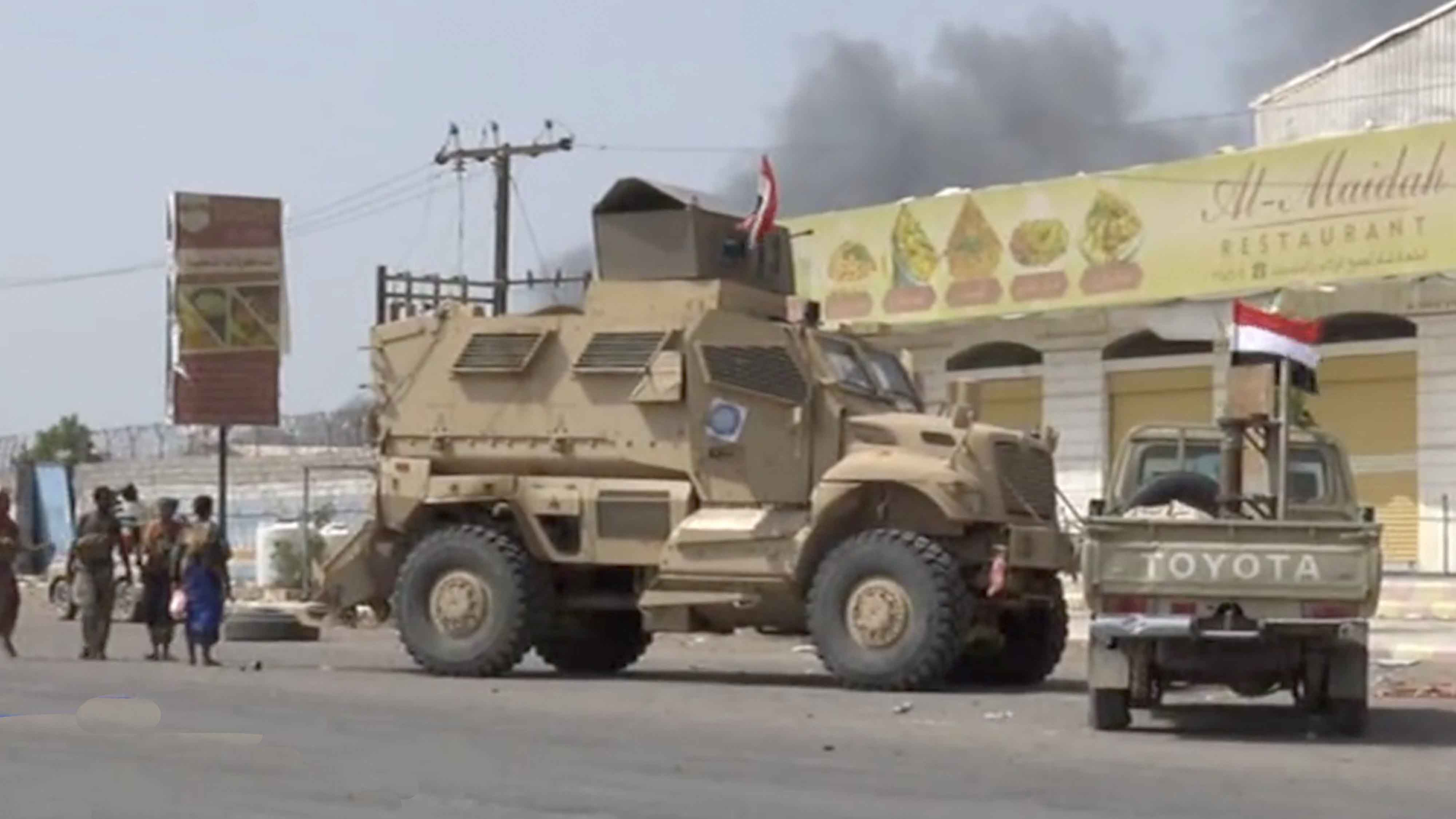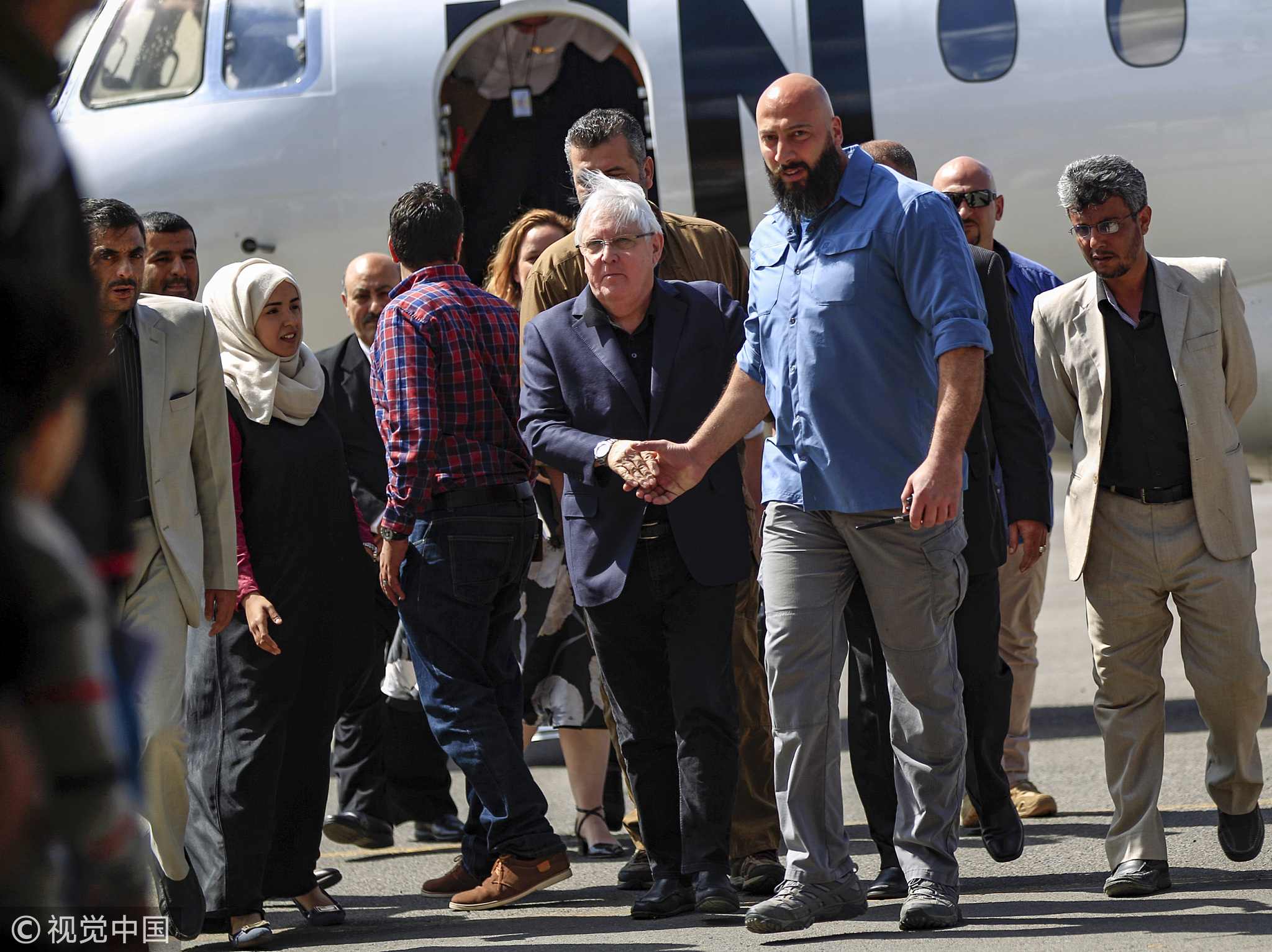
World
15:19, 23-Nov-2018
An expert's opinion on Yemen crisis and coming peace talks
Updated
14:32, 26-Nov-2018
By Han Lin, Xu Xiaoxiao
02:36

United Nations (UN) envoy Martin Griffiths is meeting with Yemen's Houthi leader. The two sides are expected to work out details of peace talks expected in December in Sweden.
Griffiths arrived in the Houthi-held capital Sanaa to push for negotiations between the Houthi fighters and Saudi-backed forces to help halt years of conflict.
During the meeting, the Houthi leader reaffirmed his group's commitment to attending the peace talks. In September, the Yemen peace talks in Geneva collapsed, after the Houthis did not show up.

Martin Griffiths (C), the UN special envoy for Yemen, walks away from his plane upon his arrival at Sanaa international airport, November 21, 2018. /VCG Photo
Martin Griffiths (C), the UN special envoy for Yemen, walks away from his plane upon his arrival at Sanaa international airport, November 21, 2018. /VCG Photo
Wang Jin is a research fellow of Northwest University of China specialized in Middle East politics. He believes that the failing peace talks were largely attributed to the stalemate of battlefield and the limited peaceful intention from Saudi Arabia.
Now the situation has changed, after the death of the Saudi journalist Jamal Khashoggi, which helped remind the international society of the humanitarian crisis in Yemen. And the battle in Hodeidah, especially the offensive launched by Saudi Arabia backed government forces, forced the Houthi rebels to seek peace negotiations.
Yemen stands at the very significant geopolitical points at Middle East. Wang Jin said the upcoming peace talks may be an opportunity for Yemen to end its long-lasting civil war, but for Saudi Arabia and Iran, the situation is much more complicated. Apart from Sunnis-Shiah differences, Saudi feels the imminent pressure from Iran, so it is less possible for Saudi to make concessions to Iran in the short terms.
As to the role of the United States in the Middle East, Wang said Donald Trump is still hesitating. On the one hand, the U.S. is trying to persuade Saudi Arabia in the peace talks by frequent visits to the kingdom and suspension of refueling of Saudi aircraft in Yemen. On the other hand, U.S. business ties with Saudi Arabia are very strong and the military sales are also one of the concerns. So Trump might influence - but not determine - Saudi's decision.

SITEMAP
Copyright © 2018 CGTN. Beijing ICP prepared NO.16065310-3
Copyright © 2018 CGTN. Beijing ICP prepared NO.16065310-3